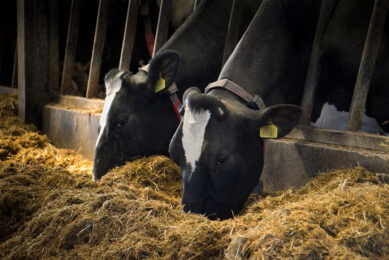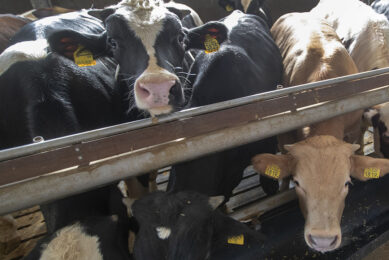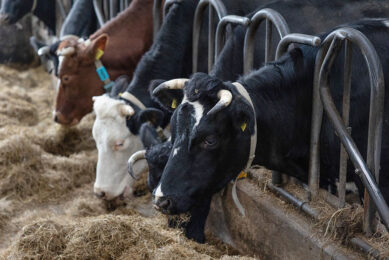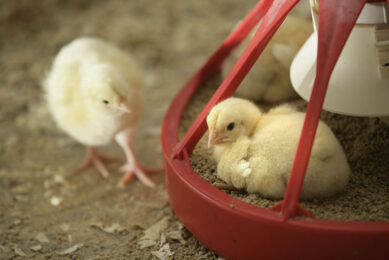Positive results of plant extracts for beef cattle
Just like any other livestock industry, beef producers are confronted with marked inflation in raw material pricing which increased the competition and puts pressure on profit margins. A feed supplement containing clove, cinnamon and capsicum could help to reduce this pressure. By Armin Vikari
compounds capsaicin, cinnamaldehyde and eugenol, found in clove, cinnamon and
capsicum. Already, a two-way combination of cinnamaldehyde and eugenol has been
in commercial use for several years in forage-based ruminant diets. Their modes
of action combine to extract more energy from a given amount of feed.
Cinnamaldehyde stimulates the production of propionate, the precursor of
blood glucose, thereby reducing the acetate(C2):(C3)
propionate ratio resulting from rumen fermentation, while eugenol increases the
total energy extracted from the diet in the form of higher volatile fatty acid
production. The three component product has been developed for medium to high
fermentable carbohydrate beef diets. The capsaicin also shows the effects of the
other two components, but in addition also modifies the distribution of feed
consumption over the course of a day. It reduces the size of the first meal
after fresh feed is offered and increases trough later in the day
(*Figure 1).
blood glucose, thereby reducing the acetate(C2):(C3)
propionate ratio resulting from rumen fermentation, while eugenol increases the
total energy extracted from the diet in the form of higher volatile fatty acid
production. The three component product has been developed for medium to high
fermentable carbohydrate beef diets. The capsaicin also shows the effects of the
other two components, but in addition also modifies the distribution of feed
consumption over the course of a day. It reduces the size of the first meal
after fresh feed is offered and increases trough later in the day
(*Figure 1).
One advantage of this is reduced acidosis resulting from the first big feed
of the day. The product’s active ingredients are microencapsulated with
hydrogenated vegetable oil. This controlled-release formulation gives the active
ingredients a much longer dwell-time, and therefore duration of activity.
of the day. The product’s active ingredients are microencapsulated with
hydrogenated vegetable oil. This controlled-release formulation gives the active
ingredients a much longer dwell-time, and therefore duration of activity.
Dr Armin Vikari studied Nutrition Sciences at the Technical University
Munich in Germany, where he also received his PhD in 2004 at the Department of
Animal Nutrition and Production Physiology. In 2005 he took up the position as
Area Sales Manager Asia Pacific, Business Unit Animal Nutrition at JRS in
Germany. Armin has been recently appointed as Product Manager Bioactives at
Pancosma.
Munich in Germany, where he also received his PhD in 2004 at the Department of
Animal Nutrition and Production Physiology. In 2005 he took up the position as
Area Sales Manager Asia Pacific, Business Unit Animal Nutrition at JRS in
Germany. Armin has been recently appointed as Product Manager Bioactives at
Pancosma.
Improved weight gain
In a farm-based trial involving
153 beef cattle on barley straw and ad-lib concentrates, feed conversion was
improved by 16%, from 6.4 to 5.4, in treated animals compared with a negative
control (*Table 1). Daily weight gain was similar while feed use was
14% lower in the treated group. In the same trial, male cattle receiving the
supplement showed a 5.6% growth rate advantage and 9.3% lower feed consumption,
while in females the corresponding figures were 3.8% lower growth rate and 18.9%
lower feed use (*Table 2).
In a farm-based trial involving
153 beef cattle on barley straw and ad-lib concentrates, feed conversion was
improved by 16%, from 6.4 to 5.4, in treated animals compared with a negative
control (*Table 1). Daily weight gain was similar while feed use was
14% lower in the treated group. In the same trial, male cattle receiving the
supplement showed a 5.6% growth rate advantage and 9.3% lower feed consumption,
while in females the corresponding figures were 3.8% lower growth rate and 18.9%
lower feed use (*Table 2).
The resulting improvements in feed conversion were 16.3% in male cattle and
15.7% in females. The new supplement was also compared to an ionophore
supplement. In a trial on 160 cross-bred steers, the plant extract supplement
performed better in terms of average daily gain (*Table 3) and feed
conversion (see *Table 4). Also, this trial recorded the incidence of
veterinary interventions, which was reduced markedly in the plant extract groups
compared with the negative control.
15.7% in females. The new supplement was also compared to an ionophore
supplement. In a trial on 160 cross-bred steers, the plant extract supplement
performed better in terms of average daily gain (*Table 3) and feed
conversion (see *Table 4). Also, this trial recorded the incidence of
veterinary interventions, which was reduced markedly in the plant extract groups
compared with the negative control.
Conclusion
The use of natural growth promoting
ingredients is getting more attention in commercial beef operations. The use of
plant extracts such as clover, cinnamon and capsicum seem to benefit the animals
in showing improved feed conversion rates and average daily gain.
The use of natural growth promoting
ingredients is getting more attention in commercial beef operations. The use of
plant extracts such as clover, cinnamon and capsicum seem to benefit the animals
in showing improved feed conversion rates and average daily gain.
Source: Feed Mix Volume 16 No. 02
* To see Tables 1,2,3,4 and Figure 1, please click on pdf link below.











